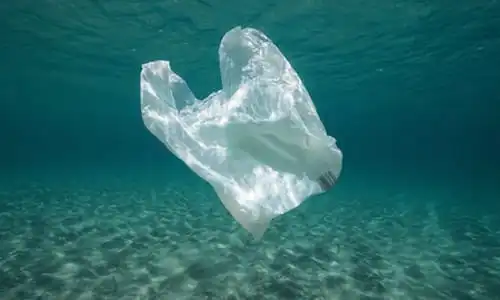
Plastic bags were invented to save the planet, according to the son of Swedish engineer Sten Gustaf Thulin who created them in 1959.
The bags were developed as an alternative to paper bags, which were considered bad for the environment because they resulted in forests being chopped down.
They were significantly stronger than paper bags, which meant – in theory – they could be used over and over again.
However, single-use plastic took off and now our consumption of this polluting material is one of the biggest threats facing the world’s seas, with marine plastic set to outweigh fish by 2050.
Raoul Thulin, son of Sten, told the BBC: “To my dad, the idea that people would simply throw these away would be bizarre. He always carried [a plastic bag] in his pocket folded up. You know what we’re all being encouraged to do today, which is to take your bags back to the shop, he was doing back in the Seventies and Eighties, just naturally, because, well, why wouldn’t you?”
Mr Thulin’s bags were patented by a company called Celloplast and by the mid-1960s they were replacing paper and cloth alternatives in Europe. By 1979, plastic bags accounted for 80 per cent of Europe’s bag market.
In 1982, two of the biggest supermarket chains in the US – Safeway and Kroger – switched to plastic bags and by the end of the decade they almost replaced paper bags around the whole world.
Plastic bags are now produced at a rate of one trillion a year, according to the UN.
While animals have been documented consuming or becoming entangled in plastics, the toxic effects the man-made substances have when they break down and end up inside marine organisms are still not clear.
Increasingly countries are looking to ban the bags.
In 2002, Bangladesh became the first country in the world to do so and now more than two dozen countries have followed suit.
However, alternatives to plastic bags are not necessarily the greener option. Although opting for paper or cotton bags would reduce litter and waste, they have other significant environmental effects.
According to the UK Environment Agency, a paper bag has to be used three times to be as environmentally friendly as a plastic bag that is recycled.
Making paper bags uses more energy and water and they are also heavier, which makes them more expensive to transport.
Bags made of cotton – a crop which requires huge amounts of water to grow – need to be used at least 131 times to be as good as a recycled plastic bag.
Currently, the majority of plastic bags are not recycled and end up in landfill or polluting the environment where they take up to 1,000 years to degrade.
Article from The INDEPENDENT UK
Comments